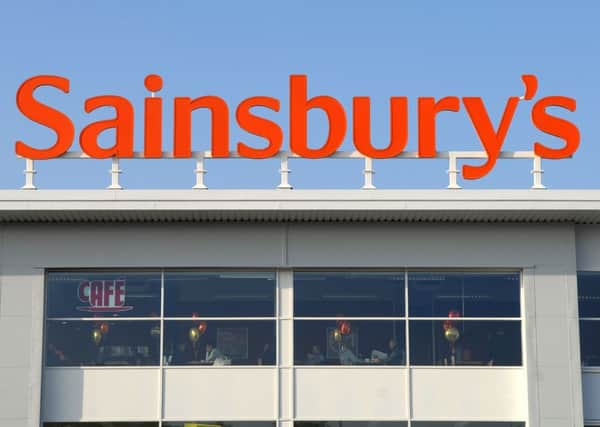Sainsbury’s is still putting its rivals in shade


Sainsbury’s trails Tesco by annual sales and is battling Asda to be Britain’s number two supermarket but has enjoyed 35 straight quarters of underlying sales growth, boosting its UK market share to a decade-high 16.8 per cent.
Chief executive Justin King said yesterday the group was well placed for more growth, even though he cautioned that any recovery in Britain’s economy may take time to take effect as consumers’ budgets are being stretched by below-inflation wage rises.
Advertisement
Hide AdAdvertisement
Hide AdThe firm is outperforming rivals with a strategy focused on own-brand products and investing in fast-growing online and local convenience store channels.
“It (Sainsbury’s) has seen off the dual threat of the fast-improving discounter Aldi and the premium Waitrose, giving Tesco a humiliating lesson in how it should be done,” said John Ibbotson, director of the retail consultancy Retail Vision.
“The only question now is how long it can hang on to the hugely talented Justin King.”
Sainsbury’s own-brand sales are growing at more than twice the rate of branded goods, while online and convenience stores are the two fastest-growing areas in the grocery sector, as consumers increasingly use the internet to shop and high fuel prices deter trips to town centres and out-of-town malls.
Advertisement
Hide AdAdvertisement
Hide AdAt the same time consumers prefer to shop for small amounts every other day rather than sacrifice several hours of their time doing a weekly shop. Sainsbury’s online grocery sales rose by 15 per cent in the half, while convenience store sales increased over 20 per cent.
The group has also benefited from the success of its ‘Brand Match’ price-comparison scheme, along with increased sales of non-food products, especially clothing, kitchen electrical and cookware.
In addition, it avoided any involvement in a scandal over foods found to contain horsemeat when they were labelled as containing other meats.
Shares in Sainsbury, up 16 per cent so far this year, rose by 2.7 per cent at 419p yesterday morning, valuing the business at £7.8bn.
Advertisement
Hide AdAdvertisement
Hide AdSainsbury’s profit before tax and one-off items reached £400m in the six months to September 28 – at the top end of analysts’ forecasts and ahead of the £374m made last year.
In stark contrast, Tesco last month posted a 1.5 per cent fall in first-half UK trading profit.
According to monthly data from market researcher Kantar Worldpanel, only Sainsbury’s and John Lewis’s Waitrose among Britain’s top six grocers are currently resisting pressure from discounters Aldi and Lidl to expand their market share.
Kantar data has Sainsbury’s as Britain’s number three grocer, while Nielsen data shows it has overtaken Asda to be number two.
Advertisement
Hide AdAdvertisement
Hide Ad“The key measure is where we are in the eyes of our customers and on important measures like quality, like availability, like service, and that’s why our sales are growing in contrast to most of our grocery competition,” Mr King said.
Sainsbury’s first-half sales rose 4.4 per cent to £13.95bn, while sales at stores open more than a year, excluding fuel, were up 1.4 per cent and its operating margin rose seven basis points to 3.47 per cent.
Cost savings of £55m were also eked out.
It did, however, book a £92m impairment charge following a review of its property pipeline that identified some sites where it no longer wishes to build stores.
Sainsbury’s raised its interim dividend by 4.2 per cent to 5p.
Advertisement
Hide AdAdvertisement
Hide AdMeanwhile, it is creating up to 16,000 temporary jobs over the busy Christmas and New Year period.
Around 2,000 posts are expected to be made permanent.
Peers play a major role
Sainsbury’s ability to outperform its rivals will partly rely on peers not fully addressing their current shortcomings, according to analysts.
In an analyst’s note, brokerage Jefferies said the group’s much greater weighting to parts of the UK where demand is healthier and discount penetration a lot lower, as well as the lack of a non-food offering were considerations in its strong sales.
It added: “Whether Sainsbury can continue to outperform to such an extent will be partly reliant on peers not fully addressing their current shortcomings (and discounters remaining significantly underrepresented in greater London).”